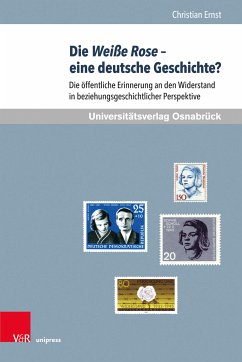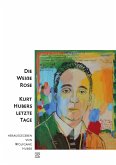Memory can write History. For the first time, Christian Ernst examines connections between the public remembrance of the Weiße Rose in East and West Germany and how it changes after the unification of the two German states. The prominent role of the resistance group is traced back to its broad reception in exile literature, postwar publications in East and West and its integration into memory discourses in both the Federal German Republic and the GDR. After 1990, interpretations of the political significance of the Weiße Rose for a national memory culture become consensual under antitotalitarian premisses. The study contributes to a history of the memory of national socialism and demonstrates the historicity of German memory culture ('Erinnerungskultur') as both a scientific and a political concept.
Dieser Download kann aus rechtlichen Gründen nur mit Rechnungsadresse in A, B, BG, CY, CZ, D, DK, EW, E, FIN, F, GR, H, IRL, I, LT, L, LR, M, NL, PL, P, R, S, SLO, SK ausgeliefert werden.









